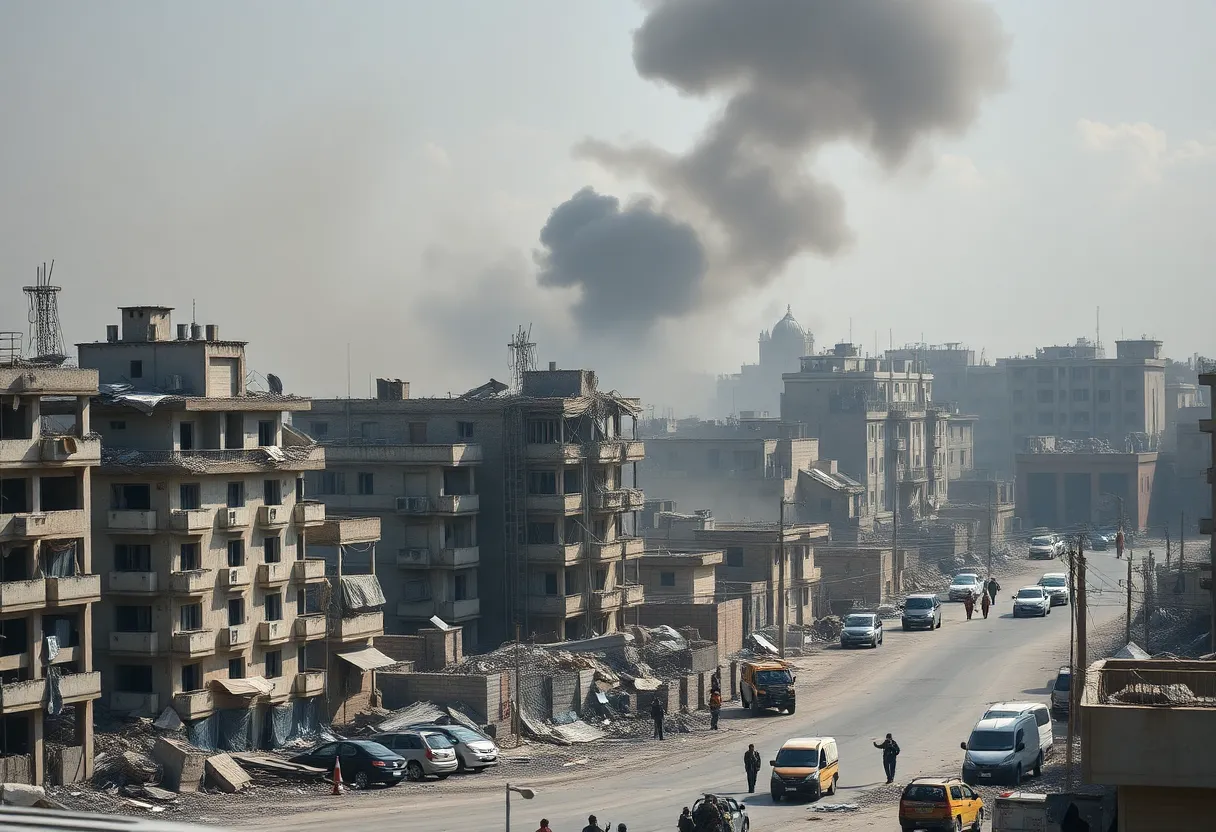

Scenes of destruction in Tehran following targeted airstrikes
Israel has launched significant airstrikes against Iran, focusing on military and nuclear sites, including the Natanz uranium enrichment facility. The attacks resulted in numerous casualties among high-ranking Iranian military officials and left substantial destruction in their wake. Responses from the Iranian leadership indicate a strong vow of retaliation, raising international concerns about escalating military conflict in the region. The implications of these strikes may have far-reaching effects not only on Iran’s nuclear ambitions but also on the Middle East’s geopolitical landscape.
In a dramatic turn of events starting Friday morning, Israel has launched a series of major airstrikes against Iran, directly targeting military and nuclear sites across the country. These strategic strikes have caused significant destruction to Iran’s largest uranium enrichment site located at Natanz, one of the core components of its nuclear program.
The result? Numerous high-ranking Iranian military officials and scientists are reportedly among the casualties. Among those confirmed dead are some rather prominent figures, including the commander-in-chief of the Islamic Revolutionary Guard Corps, the chief of staff of the Iranian military, and even former heads of key nuclear agencies.
The airstrikes not only targeted facilities but also seem to have been aimed at crippling the very military leadership of Iran. Some of the prominent individuals who lost their lives include:
In total, Iranian state media has reported that over 70 people died, with more than 320 injuries recorded following the attacks.
The first series of assaults concentrated on damaging the Natanz nuclear fuel production facility and electrical supply centers essential for the operation of Iran’s nuclear program. However, it’s worth noting that crucial near-bomb-grade nuclear fuel stockpiles located near Isfahan remained untouched during this wave of attacks. Following these initial strikes, the Israeli military confirmed a second wave aimed at laboratories crucial for converting uranium gas into metal, an essential process for weapon development.
The strikes have stirred a flurry of international concern regarding the potential for escalating military conflict in the region. Iran’s leadership has vowed to deliver a harsh response, declaring that Israel will face severe consequences for these attacks. Iranian Supreme Leader has warned that Israel’s future could be filled with “bitter and painful” outcomes.
Meanwhile, the Israeli military’s chief of staff termed this operation as a “fight to preserve our existence.” Furthermore, the discussion around potential repercussions has reached the halls of the United States, where officials have confirmed that Washington played no role in these military operations, but reiterated its unwavering support for Israel in the face of any Iranian retaliation.
On the flip side, criticism is bubbling up from some political circles in the U.S., arguing that these airstrikes are damaging diplomacy efforts aimed at limiting Iran’s nuclear ambitions. Oman, among others, has condemned Israel’s actions, branding them as a “dangerous, reckless escalation” that could spiral further into conflict.
The aftermath images emerging from Tehran and other affected cities depict harrowing scenes of destruction. Many residential areas have been left in ruins, leading to a public outcry and concern over the safety of civilians amid these military operations.
As the dust begins to settle, it’s evident that these strikes will have lasting implications, not only on Iran’s nuclear ambitions but also on the wider geopolitical landscape of the Middle East. With Israel claiming it is targeting the oppressive Iranian regime rather than its people, there is growing uncertainty about what this means for the average citizen caught in the crossfire.
All eyes are now on how Iran will respond and whether further escalations are on the horizon. This situation is one to watch closely as it unfolds, with the potential for vast implications in an already volatile region.
News Summary East Tennessee, particularly Knoxville, is facing a wave of business closures, jeopardizing the…
News Summary Tennessee has achieved the eighth position in CNBC's annual ranking of the Top…
News Summary Memphis is facing significant flooding as the Wolf River crests at its fourth-highest…
News Summary Multiple shooting incidents in South Memphis have resulted in one fatality and two…
News Summary Theatre Memphis is currently presenting 'Rumors,' a comedy by Neil Simon. The production…
News Summary The Peach Cobbler Factory is expanding its presence in Memphis, planning several new…